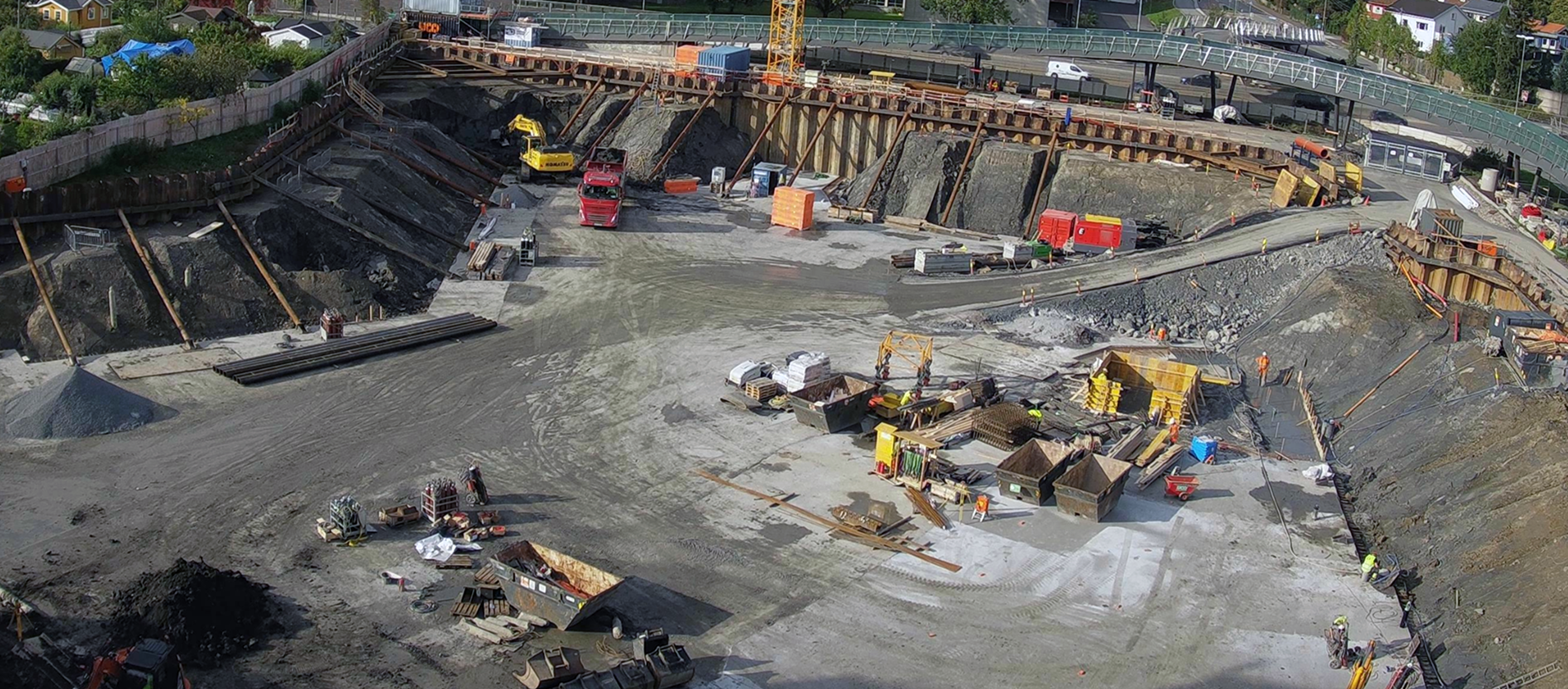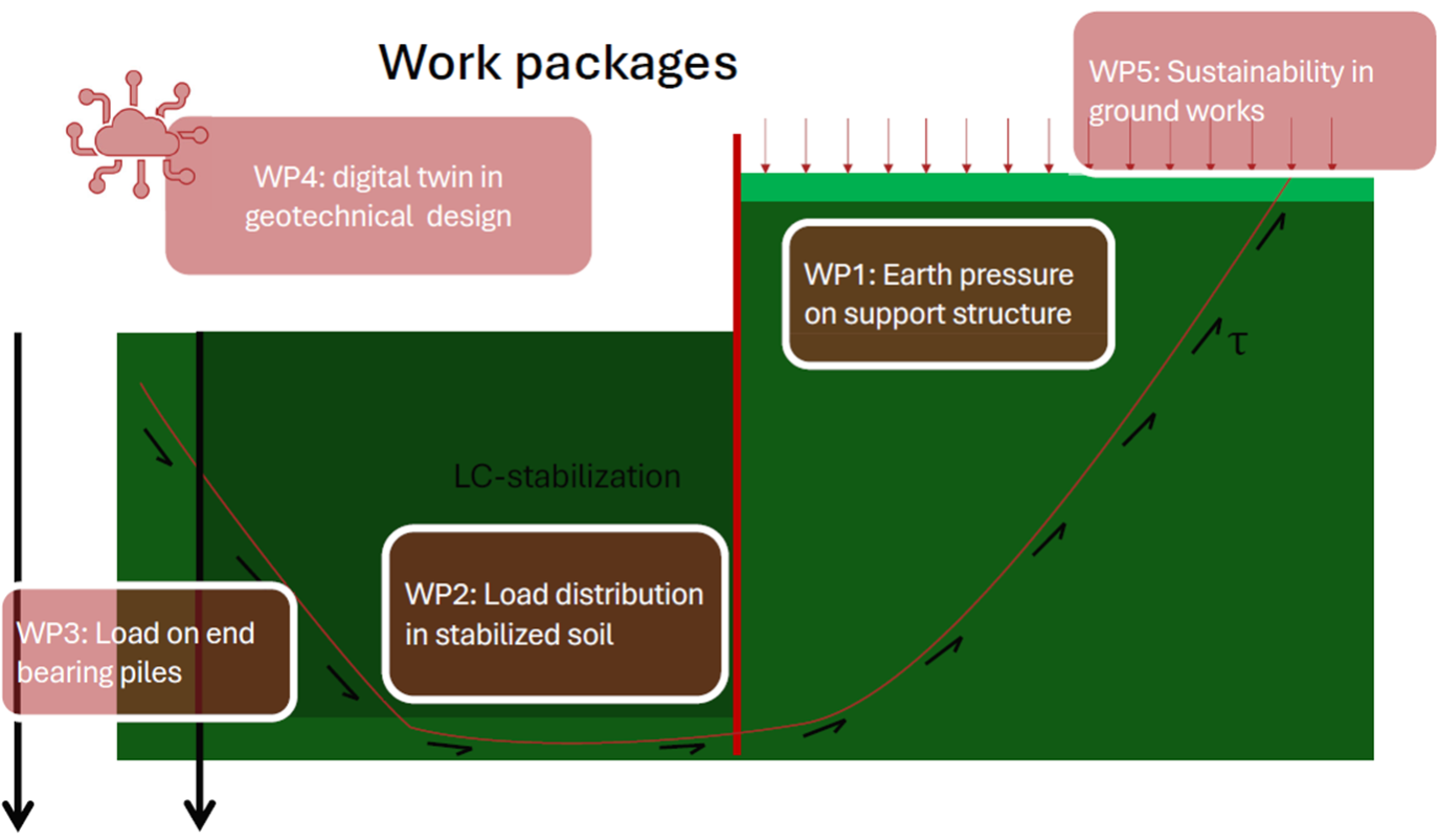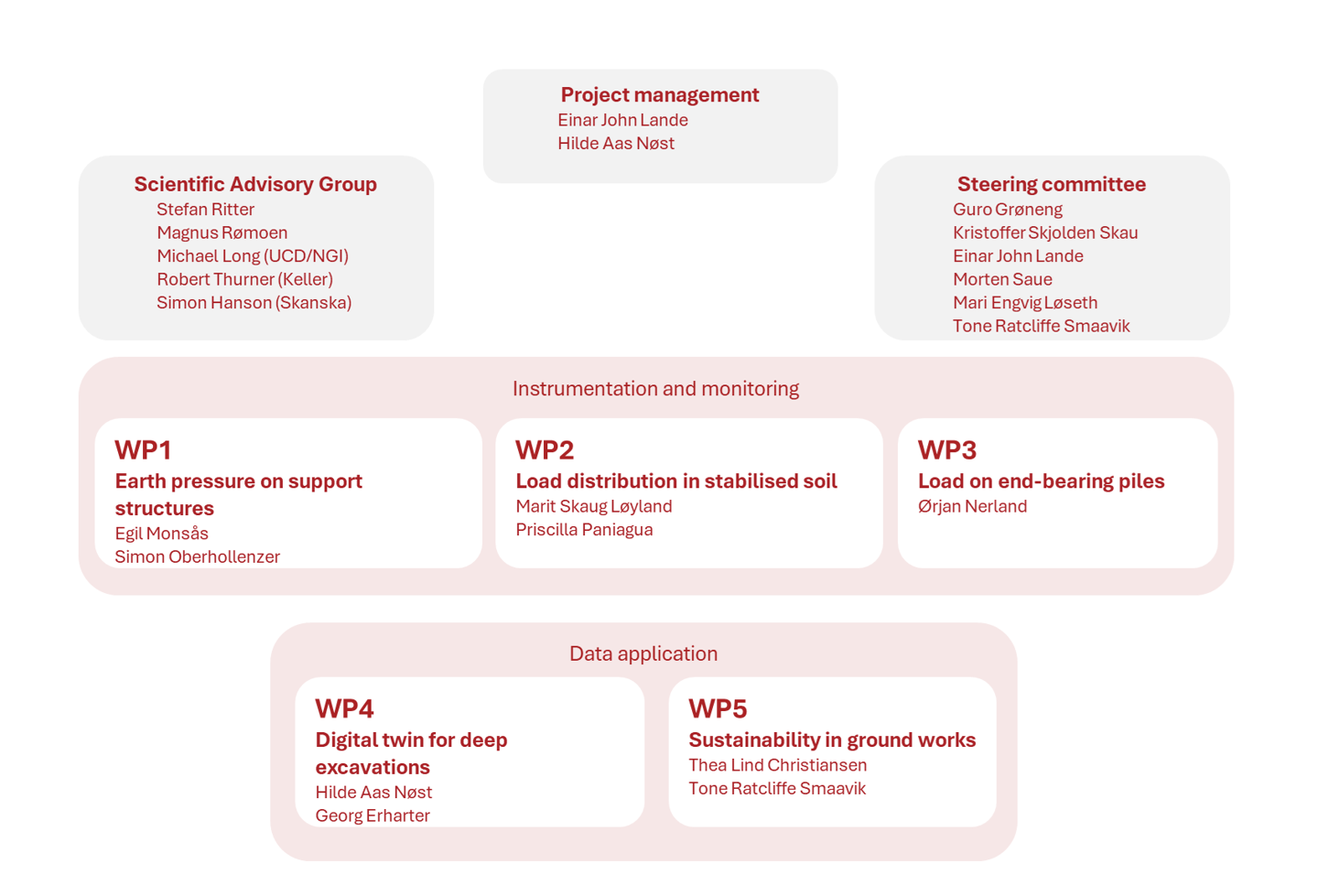NGI and Aspelin Ramm are building a new office building, Campus Ullevål at Sognsveien 72 in Oslo. Campus Ullevål will be a part of the Oslo Science City, and with a total area of 36 000 m2 it will not only be the new main office for NGI and NIVA, but also other research- and innovation companies within climate, energy, environment, and infrastructure. As part-owner and geotechnical consultants for the construction project, Campus Ullevål is a unique opportunity for NGI to integrate research in the project.
As part of the construction project, NGI initiated the Strategic Project CURIOUS – Campus Ullevål: Research and Instrumentation Of Underground Structures. The main objective is to move the research front towards a more sustainable design and construction of deep supported excavations in urban environments by implementing enabling technologies. A comprehensive instrumentation and monitoring program of the ground works are vital in the research project, as stated in the project name. The monitoring data will help answer key questions regarding the soil-structure interaction of the support system with cantilevered sheet pile walls. The focus is particularly on the earth pressures at different construction stages, which dictates the performance of the wall. By actively using the monitoring data there is a potential for optimizing the design and execution of excavations in challenging ground conditions like the Campus Ullevål site. Optimized design can reduce the need for materials and resources and contribute to reduced costs and greenhouse gas emissions.
CURIOUS aims to move the research front towards a more sustainable design and construction of deep supported excavations in urban environments by implementing enabling technologies. To achieve this there is a need for optimization of the current practice. The following secondary objectives were defined in this context:
- Implement monitoring of displacements on support walls, stabilised soil and surrounding structures enabling an improved assessment of the system behaviour and safety of deep supported excavations and foundations.
- Implement a digital twin workflow to improve and automize design and execution of future deep excavations.
- Recommendations for design and execution to reduce the greenhouse gas emissions from groundwork in future deep excavations by 15%.








